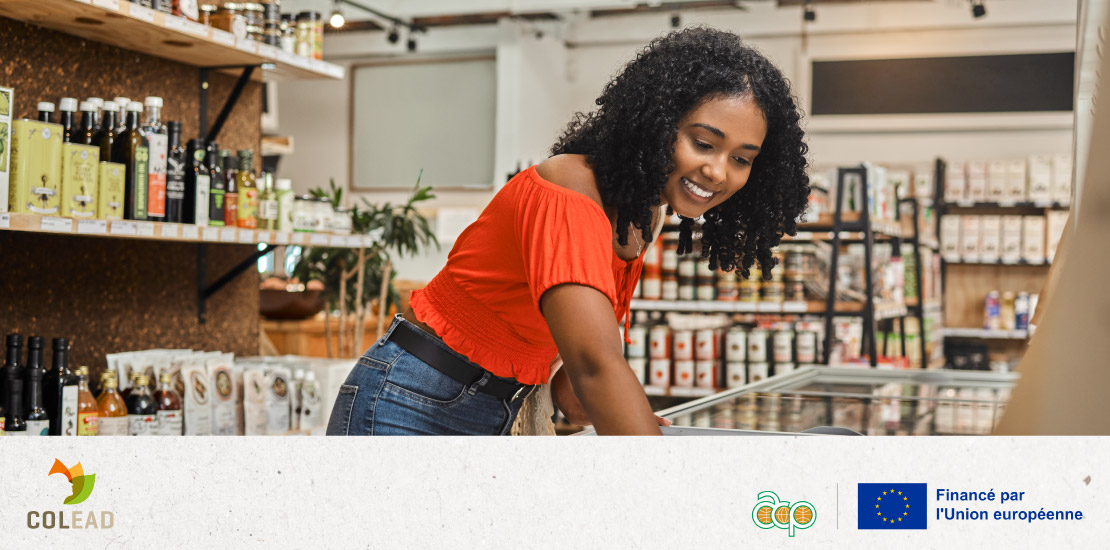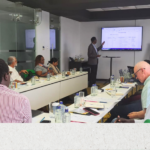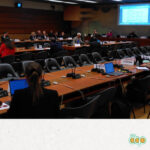Fairmiles.org: partnerships for climate justice
- 29/01/2024
- Posted by: Sandra Borma
- Category: News

Responding to COP28’s call for a “just transition”, the Fairmiles consortium explores an equitable approach to achieving “Net Zero”.
Climate change is real and requires an urgent, radical response if we are to adapt to the significant threat it poses to our planet. However, as pressure mounts on companies to act, there is a growing risk that corporate ‘net zero’ strategies – which aim to reduce emissions by cutting imports or airfreight of food – may negatively impact less economically developed countries. This is particularly true in Africa, to the detriment of the livelihoods of rural communities.
Millions of families in Africa see their livelihoods threatened by calls for a ban on flying fresh produce to UK and European supermarkets. In addition, air cargo enables communities to thrive in global supply chains, encouraging inward investment and inclusive economic development with very high economic multipliers.
Historically, African imports, particularly by air from the EU, have far exceeded exports. Fresh produce is partly transported by planes carrying European travellers. In addition, Africa represents 18% of the world’s population but only 3% of global emissions.
COP28 is committed to a ‘just transition’. The Fairmiles coalition wants to explore how we can achieve a fair approach to ‘net zero’ without denying vital market access to producers in developing countries.
The coalition’s goal is to develop a fair and equitable strategy, consistent with climate justice principles, to decarbonise the air transport of fresh produce. This approach will enable the industry to make progress towards the ‘net zero’ goal, while mitigating unforeseen impacts such as the potential loss of livelihoods in developing communities. Overall, ‘climate justice’ embodies the principle that efforts to address the climate emergency must simultaneously address its social and economic impacts, particularly in terms of equity, equality and human rights.
Fairmiles works with key stakeholders in retail, government and civil society. This collaboration aims to highlight the importance of maintaining vital trade links with developing countries and to recommend ways to reduce emissions without marginalising vulnerable communities.
The expected outcomes of this new international initiative include:
- Conduct research on the impact of products transported by air.
- Raise awareness of the issue among key stakeholders and the general public.
- Agree guidelines for Fairmiles Net Zero best practice for the industry.
- Translate our shared ambition into an action plan with quantifiable targets.
Fairmiles was launched in partnership with Beanstalk.Global, Blue Skies, COLEAD, the University of Exeter, the University of Northampton and the Overseas Development Institute (ODI). The initiative is supported by a consortium of over 15 organisations representing African fresh produce companies, academia and the development sector (source: fairmiles.org).
COLEAD’s new commitment to a multi-stakeholder partnership underlines the need for, and value of, strong and lasting relationships. These connections, based on human, geographical and economic ties – especially between Europe and Africa – are essential to working towards a fairer world in line with the Sustainable Development Goals.
Mrs. Morag Webb, COLEAD Head of Science and Policy and Mrs. Leena Malde, WEALMOOR Ltd. General Manager and COLEAD vice President, participated in a roundtable organised by the Fairmiles consortium last December, hosted by the University of Exeter, to discuss how we can take a fair approach to Net Zero that allows us to decarbonise fresh produce without stopping vital market access for developing world producers. Morag presented some reflections from across the industry, reminding specifically African farmers, despite being the least responsible for climate change, disproportionately bear the brunt of its consequences.
Please click here to view the recording of the session.
This activity is supported by the Fit For Market Plus (FFM+) programme, implemented by COLEAD within the Framework of Development Cooperation between the Organisation of African, Caribbean and Pacific States (OACPS) and the European Union. This publication receives financial support from the European Union and the OACPS. The content of this publication is the sole responsibility of COLEAD and can in no way be taken to reflect the views of the European Union or the OACPS.





